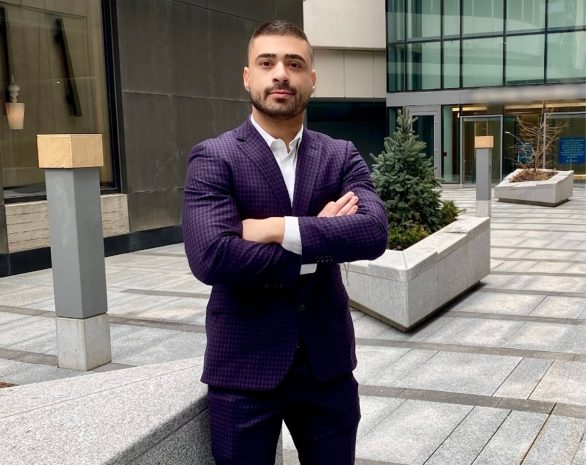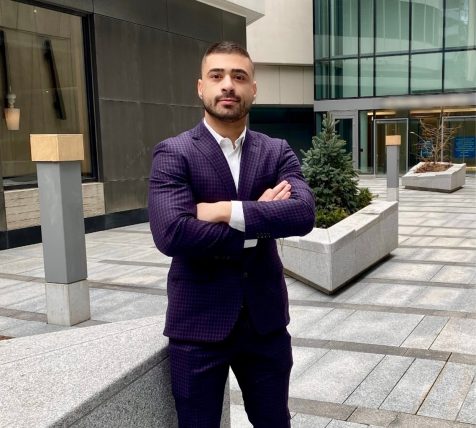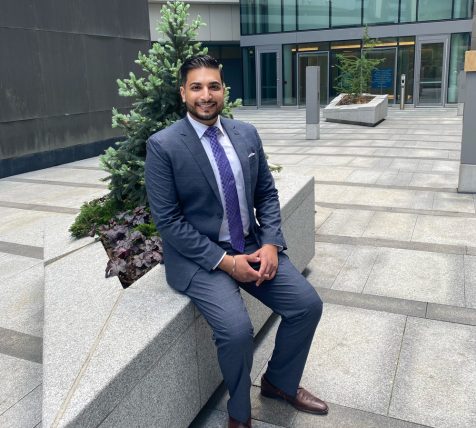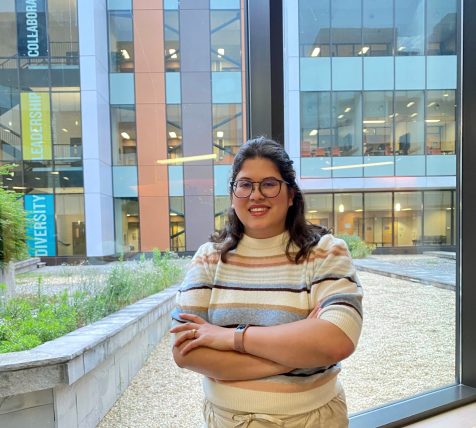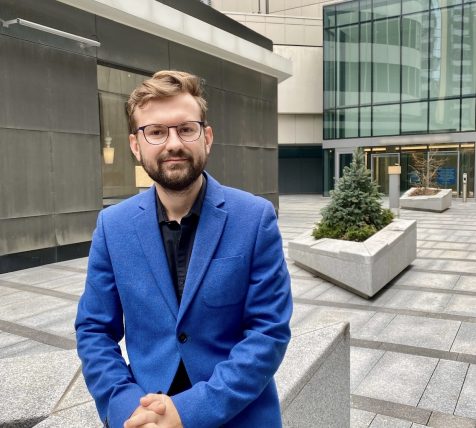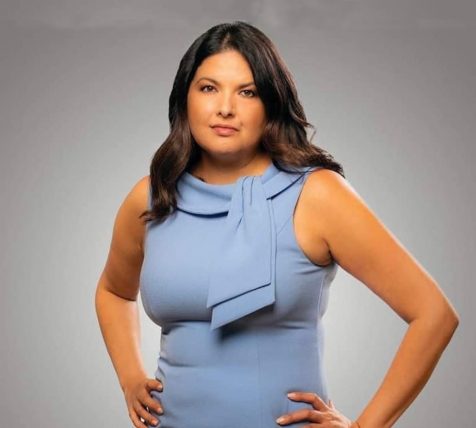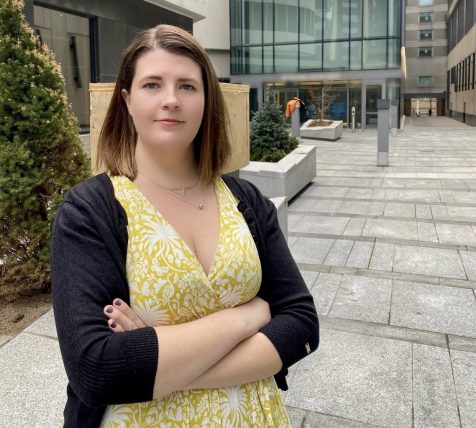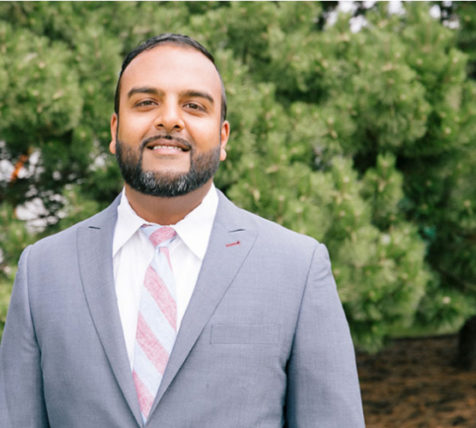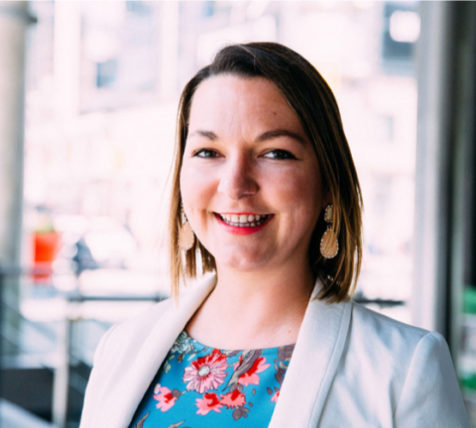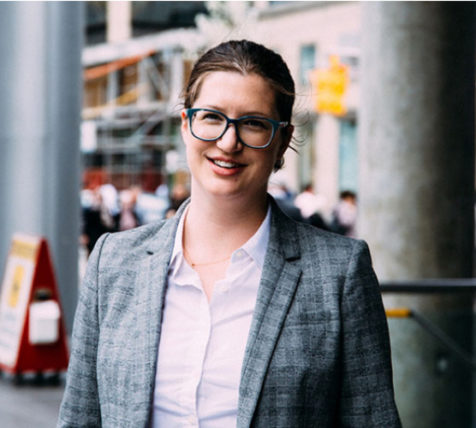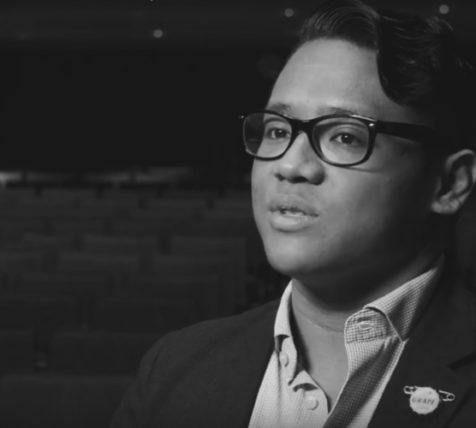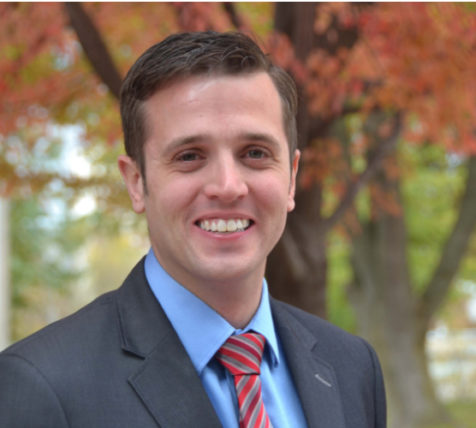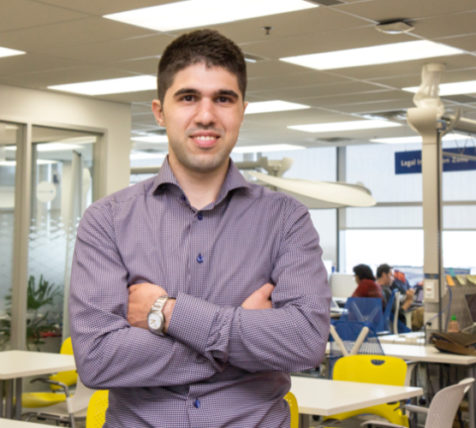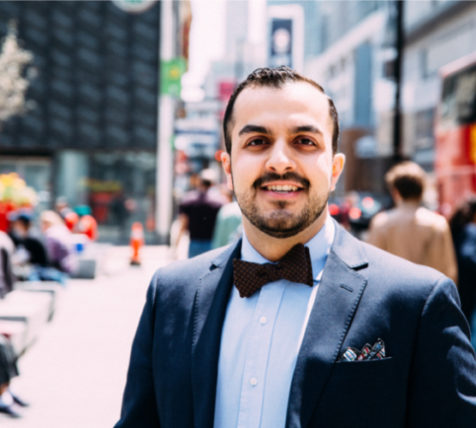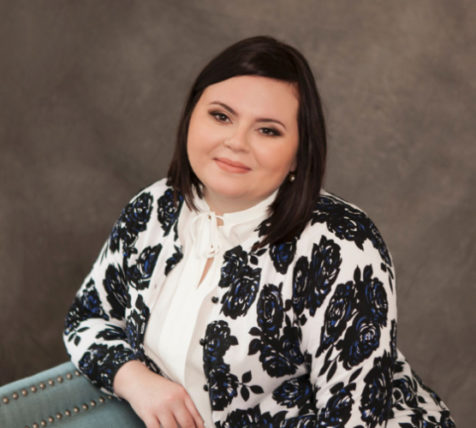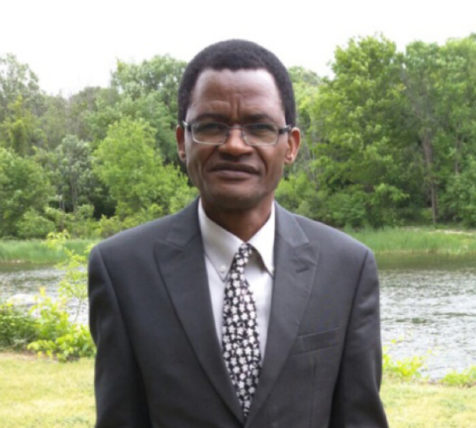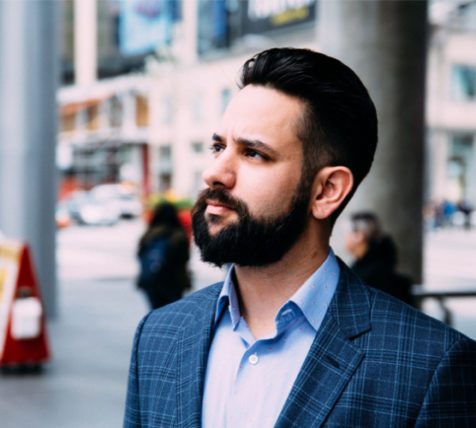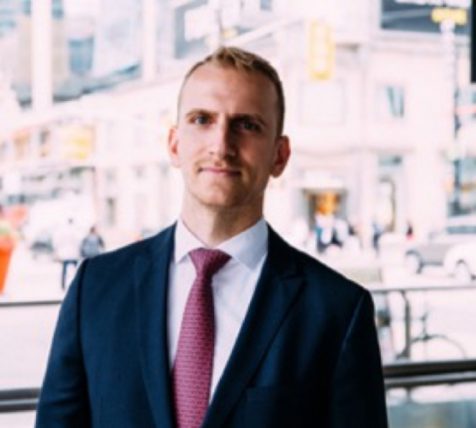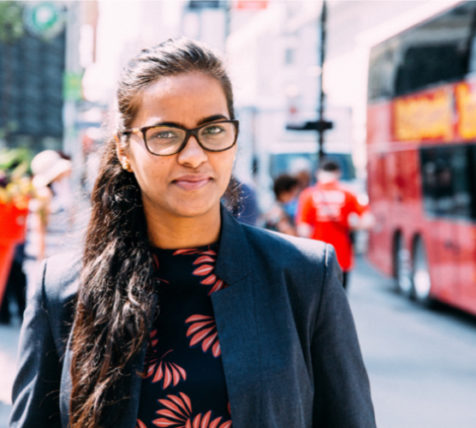Spiros Vavougios
2019-2020
For those who speak to Spiros Vavougios for the first time, his polite, soft-spoken demeanor leaves a lasting impression. Get to know him a little more and you will notice his ambition and vision to stand out against all odds. His spirit of integrity is empowering.
About Spiros Vavougios, BA, JD, LLM
As a member of the 2SLGBTQ+ community, he is using his voice to amplify the perspectives of groups that have been historically disadvantaged and underrepresented. He is strong and speaks his mind when it comes to human rights, mental health, equity, justice and the power of education without ever sacrificing honesty or empathy.
“My Aunt Betty was a major influence on me growing up. She was a crown attorney and a significant influence on my legal career. We would watch Law & Order together and it had a subconscious influence on me as I started to develop an interest in criminal law,” he says.
Spiros, who grew up in the Danforth area of Toronto, was also shaped by his grandparents who played a strong role in his upbringing.
“My grandmother was the backbone of the family and taught me how to speak Greek. She had Alzheimer’s disease and her experience of dementia influenced a major research paper that I wrote on the tensions within the principle of autonomy as it relates to medical assistance in dying. I watched my grandmother who was a strong and independent woman start declining for close to seven years. Eventually things changed and I felt like she was reborn and became a new but equally amazing woman.”
During his undergraduate years Spiros developed a strong interest in academia.
“My professors had a life-changing impact on me. I was inspired to go into academia because education allows you to explore your curiosities and better understand who you are in relation to others and the institutions that surround you. I was able to immerse myself in my studies, engage with my professors and I felt like I was seen,” he says.Spiros is known to look for the quiet voice in any room. “From a young age I felt like the ‘other’ or ‘different.’ I struggled with depression on and off as a kid but I really didn’t know I had depression until my 20s. I advocate for positive mental because of my own experience and I believe it is important to bring empathy and compassion to each file I take on,” he says.
These days he enjoys his dynamic role as a legal counsel at Toronto Metropolitan University (the “University”) where he practises different areas, including litigation and risk management, human rights, administrative law, policy development, privacy, legislative compliance, and constitutional law.
Law Degree
LPP In One Word
Favourite Genre: Fantasy and Sci-Fi
Why law? What inspired your legal aspirations?
What is the best part of your career?
What legal case(s) had a strong impact on you and why?
While completing my undergraduate studies and during my studies at Osgoode Hall Law School, I was a primary caregiver to my grandmother, who had Alzheimer’s disease. The Carter case left interesting constitutional questions unanswered surrounding the extent to which, under Canada’s new framework, people with neuro-degenerative conditions would have access to medical assistance in dying. From my own experiences as a caregiver to someone with Alzheimer’s, this case caused me to reflect on how the principle of autonomy relied upon in the Court’s jurisprudence ought to be re-imagined to account for the range of experiences and decision making processes affecting vulnerable persons undergoing transition toward the end of life.
Describe a defining moment in your legal career?
Where did you complete your LPP work placement?
- Meeting with clients to advise on legal and reputational risk mitigation
- Draft legal memoranda on complex issues in educational law (freedom of expression, academic freedom, the duty to accommodate, procedural fairness, contract disputes, student matters, legislative compliance)
- Draft responding materials and documents for claims brought against the University before the Human Rights Tribunal of Ontario and various levels of court
- Support the University’s Privacy Office in matters before the Information and Privacy Commissioner of Ontario
- Facilitate workshops for staff and administrators on human rights law, administrative law, and privacy matters.
I am grateful for the mentorship and support that my colleagues Julia Shin Doi, Giselle Basanta, Jennifer MacInnis, and Kate Salter provided me during my training. It is a privilege to continue to work with and learn from the team at the Office of the General Counsel and Board Secretariat.
Describe a particularly memorable or significant experience during your time at the LPP?
As lawyers, we are often taught that is our ability to reason through logic and analysis that make us effective advocates. While it is important to offer clients a measured perspective on the issues they are navigating on account of the law’s purported objectivity, it is, in my view, through empathy that we are able to engage in perceptive thinking to better understand the nature of the polycentric problems our clients face and, further, the range of creative solutions that may be appropriate in the circumstances. I believe that rather than acting as a constraint on logic and rationality, emotions can be seen as enhancing advocacy and decision-making.
Describe some of the more particularly helpful tools or skills you acquired during the LPP?
The trial advocacy intensive and negotiation workshops provide candidates with a great opportunity to develop many of the soft skills that form the bedrock of successful lawyering. These skills are helpful to solicitors and barristers alike: they are skills that can be used to secure a favourable outcome for your client once formal litigation has commenced but, more often, they can also be used to proactively navigate sensitive disputes and resolve conflicts before there is escalation to a claim.
Anything else you'd like to share about the LPP and your experience?
I had a great experience in the program and for anyone who is interested in charting their own path in the legal profession, the LPP is a natural choice.
